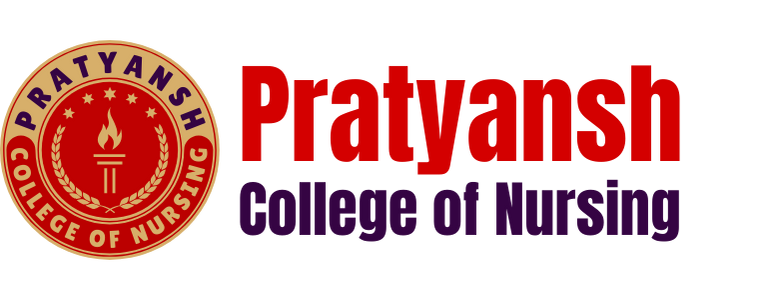
The Bachelor of Science in Nursing (BSc Nursing) program is meticulously designed to cultivate a cadre of highly skilled and compassionate healthcare professionals. This comprehensive curriculum integrates theoretical knowledge with hands-on clinical experience, equipping students with the proficiency to deliver exemplary patient care. The program encompasses core subjects such as anatomy, physiology, pharmacology, and nursing ethics, providing a solid foundation for evidence-based practice.
With a focus on critical thinking, communication, and leadership skills, students are prepared to meet the dynamic challenges of the healthcare industry. Our assertive approach emphasizes experiential learning through clinical rotations, ensuring graduates are adept at managing diverse healthcare scenarios. This program aligns with international standards, fostering a commitment to excellence in nursing practice and promoting lifelong learning. Graduates emerge as competent and compassionate nurses, ready to contribute meaningfully to healthcare advancements and address evolving societal health needs.
Why Choose BSc Nursing?
- High Demand: Nurses are integral to the healthcare system, and the demand for skilled professionals continues to grow globally.
- Diverse Opportunities: Graduates can pursue careers in hospitals, clinics, community health, research, education, and more.
- Impactful Career: Make a meaningful difference in people’s lives by delivering quality care and support to patients.
Program Highlights
- Duration: 4 years (8 semesters, including clinical training and internships)
- Eligibility: Completion of 10+2 or equivalent with a science background (Physics, Chemistry, Biology), meeting the institution’s minimum grade criteria.
- Accreditation: Recognized by [relevant governing body, e.g., Nursing Council of [Country]].
- Mode of Study: Full-time, with options for practical and theoretical learning.
Curriculum
The BSc Nursing program covers a wide range of subjects to provide a holistic understanding of nursing and healthcare. Key areas of study include:
- Basic Sciences:
- Anatomy and Physiology
- Microbiology
- Biochemistry
- Core Nursing Subjects:
- Fundamentals of Nursing
- Medical-Surgical Nursing
- Child Health Nursing
- Mental Health Nursing
- Community Health Nursing
- Supportive Courses:
- Pharmacology
- Nutrition and Dietetics
- Pathology
- Professional Development:
- Nursing Research
- Management of Nursing Services
- Ethics and Professionalism
- Clinical Practice:
- Hands-on training in hospitals and healthcare facilities under the supervision of experienced professionals.
Eligibility
Undergraduate (UG):
- Prospective students should have passed 10+2 or equivalent examination from any recognized school board, with Mathematics as a compulsory subject studied at the intermediate level.
- A minimum of 50% marks in 10+2 as qualifying criteria to secure admission in this degree course.
- Qualifying and fulfilling the cutoff of the SAGE University entrance exam.
Admission Process
- Application: Submit an online or offline application with necessary documents.
- Entrance Exam (if applicable): Some institutions may require candidates to pass an entrance examination.
- Interview: Shortlisted candidates may be called for an interview.
- Final Selection: Based on academic performance, entrance exam scores, and interview results.
Career Opportunities
Graduates of the BSc Nursing program can explore various career paths, including:
- Nursing Officer: Work in hospitals, clinics, or specialty care units.
- Nurse Educator: Teach and train future nurses.
- Home Care Nurse: Provide care for patients in their homes.
- Maternal and Child Health (MCH) & Family Planning Nurse: Focus on reproductive health and family planning.
- School Health Nurse: Promote health and wellness in educational settings.
- Nurse Practitioner: Deliver advanced nursing care.
- Community Health Nurse: Advocate for health and wellness in community settings.
- Industrial Health Nurse: Provide healthcare in workplace environments.
- Mental Health Nurse: Support patients with psychiatric conditions.
- Nurse Researcher: Contribute to advancements in medical and nursing practices.
- Community Health Officer: Lead healthcare initiatives at the community level.
Facilities and Resources
- Modern Laboratories: State-of-the-art labs equipped for practical learning.
- Experienced Faculty: Learn from qualified and compassionate educators.
- Clinical Partnerships: Collaborations with leading hospitals and healthcare facilities for internships and training.
- Library and Digital Resources: Access to a vast collection of books, journals, and online materials.
How to Apply
Ready to start your journey in nursing? Visit our [admissions page/link] to learn more about the application process, deadlines, and requirements. For additional inquiries, contact our admissions office at [contact details].
FAQs
Q: Is financial assistance available for this program?
A: Yes, scholarships and financial aid options are available for eligible students. Please visit our financial aid page for more details.
Q: What is the medium of instruction?
A: The program is conducted in English.
Q: Are there opportunities for international students?
A: Yes, we welcome applications from international students and provide support for visa and accommodation arrangements.
